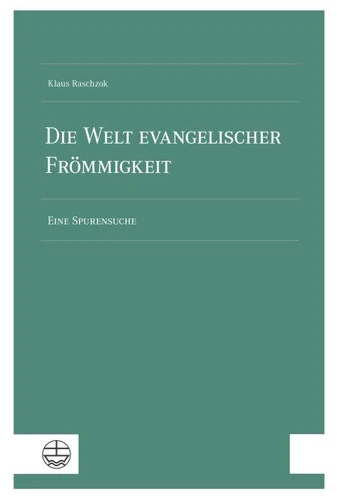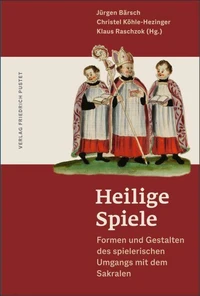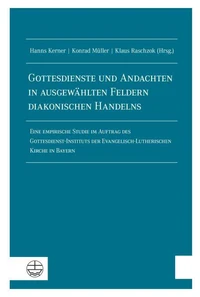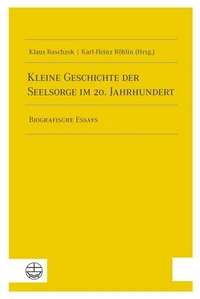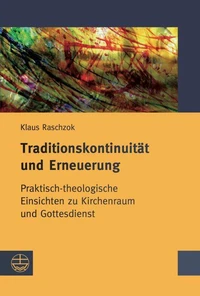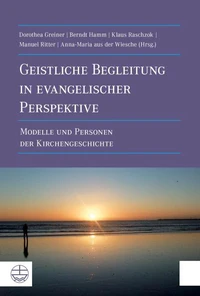Die Welt evangelischer Frömmigkeit. Eine Spurensuche
Par : , , ,Formats :
Disponible dans votre compte client Decitre ou Furet du Nord dès validation de votre commande. Le format PDF est :
- Compatible avec une lecture sur My Vivlio (smartphone, tablette, ordinateur)
- Compatible avec une lecture sur liseuses Vivlio
- Pour les liseuses autres que Vivlio, vous devez utiliser le logiciel Adobe Digital Edition. Non compatible avec la lecture sur les liseuses Kindle, Remarkable et Sony
 , qui est-ce ?
, qui est-ce ?Notre partenaire de plateforme de lecture numérique où vous retrouverez l'ensemble de vos ebooks gratuitement
Pour en savoir plus sur nos ebooks, consultez notre aide en ligne ici
- Nombre de pages368
- FormatPDF
- ISBN978-3-374-07732-8
- EAN9783374077328
- Date de parution24/01/2025
- Protection num.Digital Watermarking
- Taille2 Mo
- Infos supplémentairespdf
- ÉditeurEvangelische Verlagsanstalt
Résumé
Die Aszetik als zentrales Thema der Praktischen Theologie ist im evangelischen deutschsprachigen Raum seit langem stark vernachlässigt worden.
Der emeritierte Lehrstuhlinhaber für Praktische Theologie und Seniordirektor des Instituts für evangelische Aszetik an der Augustana-Hochschule Neuendettelsau, Prof. Dr. Klaus Raschzok, lenkt mit einer Reihe von Aufsätzen über Gestalten und Formen einer christlich-theologischen Existenz, über evangelische Frömmigkeit im lebensweltlichen Kontext, über Spiritualität im Kontext des Wirtschaftens sowie über das Geistliche Amt, Ordination und Berufung neue Aufmerksamkeit auf die historisch gewachsene und reiche Welt evangelischer Frömmigkeit.
Deren Bedeutung für Kirche und Gesellschaft kann kaum überschätzt werden. Die Spuren, denen die einzelnen Beiträge nachgehen, führen unter anderem zur bibeltextbezogenen Gebetspraxis Martin Luthers, zur Bedeutung der Krippe für eine vielfach zu Unrecht diskreditierte Weihnachtsfrömmigkeit oder zur Bedeutung der Spiritualität im Kontext des Wirtschaftens in sozialen Unternehmen. [The World of Protestant Piety.
A Search for Traces] Asceticism as a central topic of practical theology has long been severely neglected in the Protestant German-speaking world. Prof. Dr. Klaus Raschzok, professor emeritus of practical theology and senior director of the Institute for Protestant Ascetics at the Augustana University of Applied Sciences in Neuendettelsau, draws new attention to the historically evolved and rich world of Protestant piety with a series of essays on the forms and shapes of a Christian theological existence, on Protestant piety in the context of life, on spirituality in the context of economic activity and on the spiritual office, ordination and vocation.
Its importance for the church and society can hardly be overestimated. The traces that the individual contributions follow lead, among other things, to Martin Luther's practice of prayer based on the Bible text, to the significance of the nativity scene for a Christmas piety that has often been unjustly discredited or to the significance of spirituality in the context of business in social enterprises.
Deren Bedeutung für Kirche und Gesellschaft kann kaum überschätzt werden. Die Spuren, denen die einzelnen Beiträge nachgehen, führen unter anderem zur bibeltextbezogenen Gebetspraxis Martin Luthers, zur Bedeutung der Krippe für eine vielfach zu Unrecht diskreditierte Weihnachtsfrömmigkeit oder zur Bedeutung der Spiritualität im Kontext des Wirtschaftens in sozialen Unternehmen. [The World of Protestant Piety.
A Search for Traces] Asceticism as a central topic of practical theology has long been severely neglected in the Protestant German-speaking world. Prof. Dr. Klaus Raschzok, professor emeritus of practical theology and senior director of the Institute for Protestant Ascetics at the Augustana University of Applied Sciences in Neuendettelsau, draws new attention to the historically evolved and rich world of Protestant piety with a series of essays on the forms and shapes of a Christian theological existence, on Protestant piety in the context of life, on spirituality in the context of economic activity and on the spiritual office, ordination and vocation.
Its importance for the church and society can hardly be overestimated. The traces that the individual contributions follow lead, among other things, to Martin Luther's practice of prayer based on the Bible text, to the significance of the nativity scene for a Christmas piety that has often been unjustly discredited or to the significance of spirituality in the context of business in social enterprises.
Die Aszetik als zentrales Thema der Praktischen Theologie ist im evangelischen deutschsprachigen Raum seit langem stark vernachlässigt worden.
Der emeritierte Lehrstuhlinhaber für Praktische Theologie und Seniordirektor des Instituts für evangelische Aszetik an der Augustana-Hochschule Neuendettelsau, Prof. Dr. Klaus Raschzok, lenkt mit einer Reihe von Aufsätzen über Gestalten und Formen einer christlich-theologischen Existenz, über evangelische Frömmigkeit im lebensweltlichen Kontext, über Spiritualität im Kontext des Wirtschaftens sowie über das Geistliche Amt, Ordination und Berufung neue Aufmerksamkeit auf die historisch gewachsene und reiche Welt evangelischer Frömmigkeit.
Deren Bedeutung für Kirche und Gesellschaft kann kaum überschätzt werden. Die Spuren, denen die einzelnen Beiträge nachgehen, führen unter anderem zur bibeltextbezogenen Gebetspraxis Martin Luthers, zur Bedeutung der Krippe für eine vielfach zu Unrecht diskreditierte Weihnachtsfrömmigkeit oder zur Bedeutung der Spiritualität im Kontext des Wirtschaftens in sozialen Unternehmen. [The World of Protestant Piety.
A Search for Traces] Asceticism as a central topic of practical theology has long been severely neglected in the Protestant German-speaking world. Prof. Dr. Klaus Raschzok, professor emeritus of practical theology and senior director of the Institute for Protestant Ascetics at the Augustana University of Applied Sciences in Neuendettelsau, draws new attention to the historically evolved and rich world of Protestant piety with a series of essays on the forms and shapes of a Christian theological existence, on Protestant piety in the context of life, on spirituality in the context of economic activity and on the spiritual office, ordination and vocation.
Its importance for the church and society can hardly be overestimated. The traces that the individual contributions follow lead, among other things, to Martin Luther's practice of prayer based on the Bible text, to the significance of the nativity scene for a Christmas piety that has often been unjustly discredited or to the significance of spirituality in the context of business in social enterprises.
Deren Bedeutung für Kirche und Gesellschaft kann kaum überschätzt werden. Die Spuren, denen die einzelnen Beiträge nachgehen, führen unter anderem zur bibeltextbezogenen Gebetspraxis Martin Luthers, zur Bedeutung der Krippe für eine vielfach zu Unrecht diskreditierte Weihnachtsfrömmigkeit oder zur Bedeutung der Spiritualität im Kontext des Wirtschaftens in sozialen Unternehmen. [The World of Protestant Piety.
A Search for Traces] Asceticism as a central topic of practical theology has long been severely neglected in the Protestant German-speaking world. Prof. Dr. Klaus Raschzok, professor emeritus of practical theology and senior director of the Institute for Protestant Ascetics at the Augustana University of Applied Sciences in Neuendettelsau, draws new attention to the historically evolved and rich world of Protestant piety with a series of essays on the forms and shapes of a Christian theological existence, on Protestant piety in the context of life, on spirituality in the context of economic activity and on the spiritual office, ordination and vocation.
Its importance for the church and society can hardly be overestimated. The traces that the individual contributions follow lead, among other things, to Martin Luther's practice of prayer based on the Bible text, to the significance of the nativity scene for a Christmas piety that has often been unjustly discredited or to the significance of spirituality in the context of business in social enterprises.

